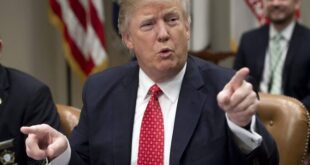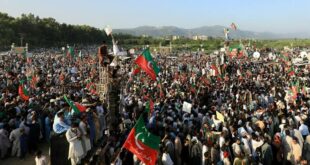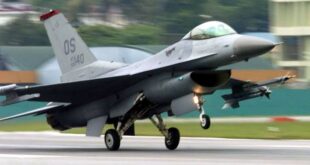By Sardar Khan Niazi
Pakistan’s external debt has increased. As a result, the country’s debt repayment has suddenly risen, putting pressure on the declining foreign exchange reserves. Therefore, the government must be cautious to avoid any hapless economic situation over external debt.
The country faces a shortage of funds required to pay its import bill, repay its foreign debts, and maintain the smallest threshold of foreign reserves at the national level.
Formerly, the country fulfilled its urgent fiscal needs through the IMF’s $3 billion Standby Arrangement and crucial assistance from friendly nations including Saudi Arabia, China, the UAE, and Qatar to bridge the financial gap.
Our economy needs infrequent doses of unpackaged finances to address its critical financial instability and confront established economic problems on a viable basis.
To acquire the bailout, Pakistan had implemented tough IMF-recommended measures including a sharp refurbished budget, a record climb in interest rates, and agonizing upturns in electricity and gas rates.
Additionally, the IMF asked Pakistan to raise $1.34 billion in new taxation to meet financial modifications, the actions that ignited momentous inflation to 38 percent, which still flies at 30 percent or above.
Lately, we have received a $700 million loan from the International Monetary Fund (IMF). The IMF Executive Board approved the second tranche of the loan after a successful review of the first installment, bringing the total disbursements under the $3 billion Standby Arrangement (SBA) to about $1.9 billion.
Our dear homeland economy is at present administered on an ad-hoc basis by the caretaker setup until the shift of power to the publicly elected leadership by the end of next month. Owing to the exceptional political condition, the International Monetary Fund (IMF) faces hard choices on how to evaluate Pakistan’s debt state of affairs and how to deal with the country because of the February 8 elections.
After assuming office, the newly elected government would face similar trials while no leader has the strategy to get rid of the loan snare and steer the country out of dogged economic sickness through different measures employing national resources, the discovery of minerals, oil deposits, and investment in human capitals, etc.
Pakistan has sought IMF help 23 times in the past 75 years, reflecting the extraordinary changeability and incessant unmanageability of its economy. The recurrent nature of pursuing IMF aid reveals the complexities of handling Pakistan`s economic matters, an absence of monetary discipline, and the disparity in government income and public spending.
Truthfully, the IMF’s programs have serious costs for the economy unambiguously intensifying inflation, poverty, joblessness, stumpy growth, and balance of payment difficulties. The IMF loans frequently lead to foreign dictation, create a policy clash, and affect national development generating longstanding reliance on global moneylenders.
Regrettably, our economists failed to tackle organizational and supervision problems that led to constant unsustainability and irregular breakdown of the national economy over the previous times.
There is an awful necessity for a national debate of the political leadership, economists, and civil society to think through the real environments that caught the country into a recurring weird situation including transitory economic advantages, wholesale circular debt, regular downfall, and the beginning of a pleading drive by the governments at repeated intermissions through the past.
Political consensus on the national economy is the need of time and future political leaders must not undermine the national economy through politically driven economic policies, fatal subsidies, and practice of favoritism in governmental affairs so this nation comes out of persistent economic ruin and moves toward comfortable circumstances and riches.
The subtle balance between external support and long-term economic freedom remains a most important challenge for Pakistani economists to plan a viable path forward and stick to it firmly.
 Pride News Daily NEWS
Pride News Daily NEWS





